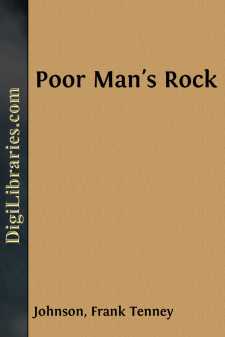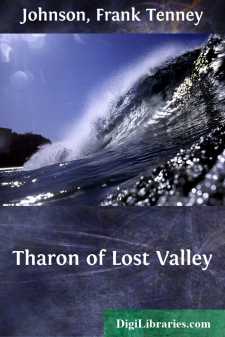Categories
- Antiques & Collectibles 13
- Architecture 36
- Art 48
- Bibles 22
- Biography & Autobiography 813
- Body, Mind & Spirit 142
- Business & Economics 28
- Children's Books 15
- Children's Fiction 12
- Computers 4
- Cooking 94
- Crafts & Hobbies 4
- Drama 346
- Education 46
- Family & Relationships 57
- Fiction 11828
- Games 19
- Gardening 17
- Health & Fitness 34
- History 1377
- House & Home 1
- Humor 147
- Juvenile Fiction 1873
- Juvenile Nonfiction 202
- Language Arts & Disciplines 88
- Law 16
- Literary Collections 686
- Literary Criticism 179
- Mathematics 13
- Medical 41
- Music 40
- Nature 179
- Non-Classifiable 1768
- Performing Arts 7
- Periodicals 1453
- Philosophy 64
- Photography 2
- Poetry 896
- Political Science 203
- Psychology 42
- Reference 154
- Religion 513
- Science 126
- Self-Help 84
- Social Science 81
- Sports & Recreation 34
- Study Aids 3
- Technology & Engineering 59
- Transportation 23
- Travel 463
- True Crime 29
Frank Tenney Johnson
Frank Tenney Johnson (1874–1939) was an American artist and writer known for his Western-themed paintings and illustrations. His vivid depictions of cowboys, Native Americans, and frontier life captured the rugged spirit of the American West. He authored books like "Western Paintings" and was highly regarded for his moonlit scenes, often referred to as "nocturnes." Johnson's work helped shape the popular image of the West in the early 20th century, blending realism with romanticism.
Author's Books:
Sort by:
CHAPTER I The House in Cradle Bay On an afternoon in the first week of November, 1918, under a sky bank full of murky cloud and an air freighted with a chill which threatened untimely snow, a man came rowing up along the western side of Squitty Island and turned into Cradle Bay, which lies under the lee of Point Old. He was a young man, almost boyish-looking. He had on a pair of fine tan shoes, brown...
more...
CHAPTER I THE GUN MAN’S HERITAGE Lost Valley lay like a sparkling jewel, fashioned in perfection, cast in the breast of the illimitable mountain country––and forever after forgotten of God. A tiny world, arrogantly unconscious of any other, it lived its own life, went its own ways, had its own conceptions of law––and they were based upon primeval instincts. Cattle by the thousand head ran on...
more...



